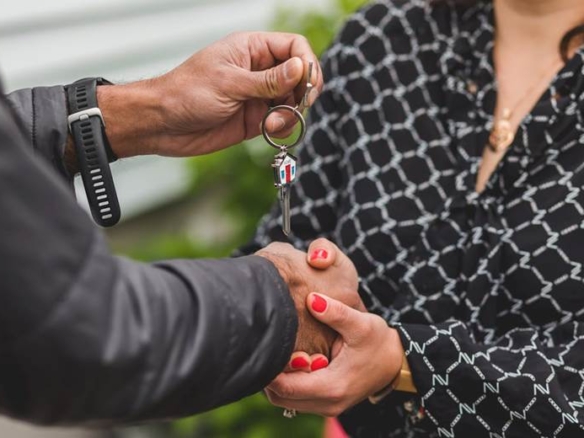Being in the market for a new home is a stressful process, but buying a house with plumbing problems will only make matters worse. However, there are steps you can take to avoid this catastrophe before you make a commitment.
Putting all your hopes and finances into a large investment like a house is daunting. With such an important decision on the line, you want to ensure you check every single nook and cranny before putting that first payment down. Additionally, you want to avoid buying a house with plumbing problems so that you won’t be subjected to costly repairs and a massive headache down the road.
Notably, plumbing problems are more frequent in older home, especially those that haven’t been updated recently. You don’t want to risk your finances or your family’s health and safety by investing in a house with bad plumbing.
But unless you’re a professional plumber, how do you know for sure? Let’s take a look at what to ask your realtor and what to check for yourself.
Inspect the Toilets
Inspecting every toilet in the house is an easy way to see if you’re buying a home with plumbing problems. Flush all toilets to ensure they function properly, and see if there are any leaks during that process.
Also, if water continues to run after flushing, this can signify a larger problem. Additionally, ensure every toilet has all its parts, such as the chain and flapper, and check for any caulking discoloration around the base. Replacing a toilet is expensive, so ensure you inspect them thoroughly.
Look For Water Stains
No one wants a new home with plumbing problems. Luckily, water stains caused by leaks are a surefire way to identify current or past plumbing problems.
Water leaks often result in brown ceiling or wall stains, especially if there is an attic or second-story. These markers indicate that water is leaking from somewhere inside the house or on the roof. If the leak remains, it should be fixed immediately before you purchase the home. Ensure you inspect all areas, including crawlspaces, attics, basements, roofs.
Water damage is no joke. Not only can it cause significant damage and cost an arm and a leg to fix, but it interrupts your life and can ruin furniture, electronics, and other personal items. This is why making sure there are no current or potential leaks is so important. You don’t want to move into a new home to have it ruined by a major leak or, worse, a flooding situation.
Ask About the Age of the Water Heater
A great way to ensure you’re not buying a home with plumbing problems is by checking how old your water heater is. You can either ask the realtor how old the house’s water heater is, or you can check to see if there is an installation date on the water heater itself.
Water heaters typically have a 10-year lifespan. So if the home’s water heater is 10 years old, or older, then a new one should be installed before you purchase the house. Doing so can prevent significant plumbing problems in your new home.
Check the Water Pressure
Another way you can avoid buying a home with plumbing problems is by testing water pressure. You can check it yourself with a pressure gauge to get a precise pressure reading. However, if you’re unsure how to check a home’s water pressure, a professional plumber can do it for you.
If the gauge reads too high, the high water pressure could endanger other home appliances and the water heater itself. If it’s too low, it could mean that there is a clog somewhere in the plumbing system.
Inspect the House’s Water & Drain Lines
Even though these tests are simple, they’re still important to ensure you’re not buying a home with plumbing problems.
Do a visual inspection for any rust or corrosion in and around the drains. Then, check if there are any water lines under the kitchen and bathroom sinks and other areas, including outdoor plumbing fixtures, to find any indication of leaks. Finally, turn on each faucet for a few minutes; check if water begins to clog or if water drains quickly. Sometimes a clog is easily fixed, but other times it signifies a much larger issue.
Check the home’s water supply pipes
Ask your realtor about the age of the property’s water supply pipes. They are costly to repair or replace, so you must know how old they are and what type of material they’re made from.
Sometimes the material they’re made of is a dead giveaway to how old the pipes really are. E.g., if they’re made of galvanized steel or polybutylene, they’re most likely older pipes and should be replaced.
Don’t be afraid to ask your realtor a lot of questions; it’s worth it to be inquisitive about the property so that you don’t end up buying a home with plumbing problems.
If you’re still unsure or don’t feel comfortable doing the checks yourself, call in a local, certified plumber to do a professional inspection. A skilled plumber will know exactly what to check and look for so you can rest assured that the house you’re about to purchase is the right one for you.



